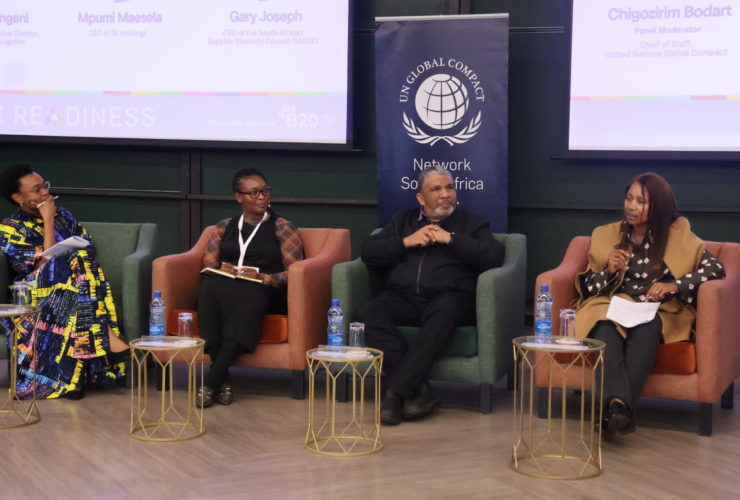ACHIENG OJWANG: SA business pushes for integrated reporting frameworks
In a world awash with conflicting sustainability laws and regulations, much benefit could be had from harmonisation

SA’s private sector displays strong commitment to sustainable and ethical practices, but it is drowning in the paperwork and reporting that is increasingly required to demonstrate this dedication.
The private sector is concerned by the continuously increasing pressure on businesses to report against a variety of local and international sustainability frameworks.
For example, the EU has introduced a carbon border adjustment mechanism (CBAM), a new regulation designed to ensure that carbon-intensive goods entering the EU pay for the emissions generated during their production. The CBAM, which will be enforced from 2026, will mean additional reporting compliance requirements for some industries, such as iron, steel and aluminium production.
Efforts to ensure considerations of sustainability are integral to business operations are welcome. But most companies still lack reporting capacity on the measures they want to manage. It is still difficult for companies to empirically assess their sustainability actions, because while many climate action measures have been standardised, many new sustainability frameworks are emerging that have complex requirements, including progress on ensuring human rights are upheld throughout the value chain.
Multinational corporations and other large companies most often have the resources they need to contend with sustainability-related trade legislation and regulations. However, smaller business organisations simply don’t have the capacity to spend the time and mental effort required to comply, and so many do not even try. We need to find a happy medium between the need to ensure business in its entirety (big and small) fully embraces the various sustainability frameworks, and the ease of doing so.
We need to do this because inadvertently the ever-growing abundance of legislation and regulations, local and international, is crushing the lifeblood of any economy: small business. The SA private sector’s appetite for being part of a more sustainable business ecosystem and meeting the UN’s 17 sustainable development goals (SDGs) is a strong thread that emerges from its contribution to SA’s second voluntary national review (VNR) on its progress towards meeting SDGs.
The first VNR was delivered to the UN in 2019. The second private sector VNR (2024) forms a significant contribution to SA’s national report for the UN High-Level Political Forum, which the SA government will deliver in July 2025.
SA businesses must comply with national sustainability-focused regulations around environmental, social and governance (ESG) reporting, green finance taxonomies and broader sustainable development frameworks. Failure to do so could affect their access to capital, and their reputations and legal standing.
Through the VNR process companies advocated for a “one-stop shop” approach to government-related compliance processes. There was a strong call for digital portals that offer user-friendly navigation and guidance through simple requirements, and a unified approach with more structure and fewer overlaps.
Companies also called for improved harmonisation between local, regional and national policies, saying they struggle to comply with multiple sustainability frameworks and sometimes varied methods for calculating sustainability measures. This also leads to difficulty understanding comparative performance between companies and between frameworks.
While compliance is important, companies argued that a better balance can be achieved on the policy enablement agenda that has greater focus on incentives and the scaling of success stories. What works in SA can work elsewhere. The world is awash in conflicting and contrasting sustainability legislation and regulations, and could benefit from harmonisation.
• Dr Ojwang is executive director of the UN Global Compact Network SA.



